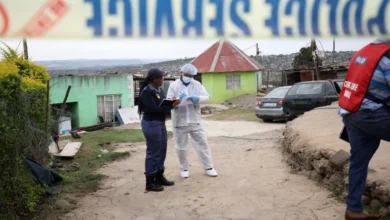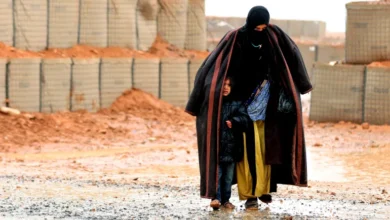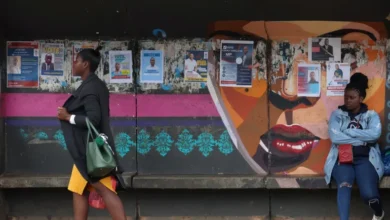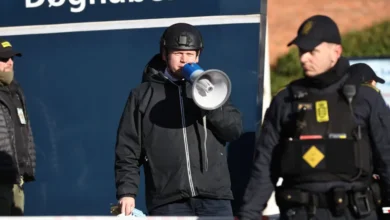‘A moral stand’: Antiracism protesters rally in UK after far-right riots
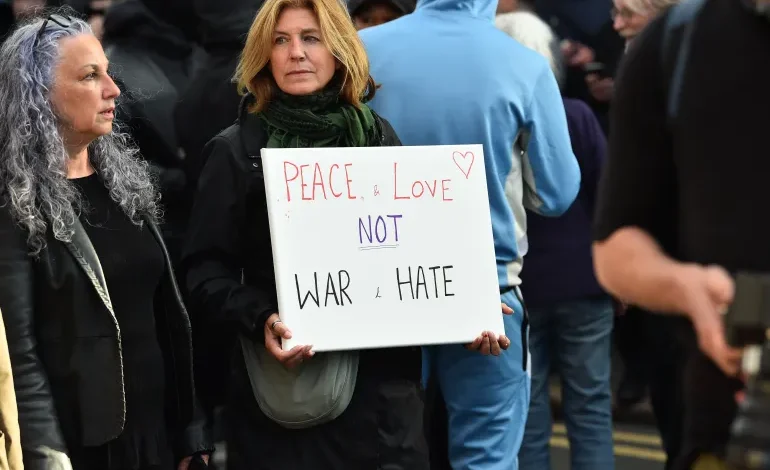
The mood was tense in Liverpool as reports spread that far-right protesters planned to target an asylum charity.
The location was supposed to be one of more than 30 sites across the United Kingdom that racist and anti-migrant protesters had singled out on Wednesday. There were similar expectations in dozens of other towns and cities, enough for the government to decide to deploy 6,000 police officers nationwide.
The 30-year-old attended the event although senior members of the Muslim community had urged young people to stay indoors following last week’s violence when Liverpool, in the northwest of England, was the centre of violent riots.
The episode was one in several cities and towns across England and Northern Ireland in what authorities described as the country’s worst outbreak of violent disorder in the last decade.
‘Not feeling safe’
The violence started in the wake of the murder of three young girls in Southport, a town north of Liverpool, as false rumours spread on social media that the perpetrator was a Muslim asylum seeker.
The police rejected the claims that were being fuelled by far-right individuals and groups, identifying the suspect in the knife attack as a 17-year-old born in Wales who was neither a Muslim nor an asylum seeker. He was later named as Axel Rudakubana, born to Rwandan parents in Cardiff, after the judge lifted reporting restrictions.
As violence spread, the government took a tough stance – an approach that may have factored into far-right protesters’ decision to not show up on Wednesday. In little more than a week, some 400 people have been arrested; a man has been charged with stirring up racial hatred by instigating an attack on asylum refugees, and a rioter, who punched a police officer, has been jailed for three years.
A senior counterterrorism official also said that rioters could be charged with “terrorism”.
The events also reignited a discussion around the regulation of social media, including Telegram – a popular platform among far-right circles thanks to its lack of content moderation. The messaging app said on Wednesday it would remove “channels and posts containing calls to violence”.
But the rioting has shocked many across the UK, with some describing the unrest as a slap in the face to decades of integration.
Muslim women wearing the hijab who spoke to Al Jazeera said they had stayed at home for the past week, while men had taken to walking in groups when out on the streets.
